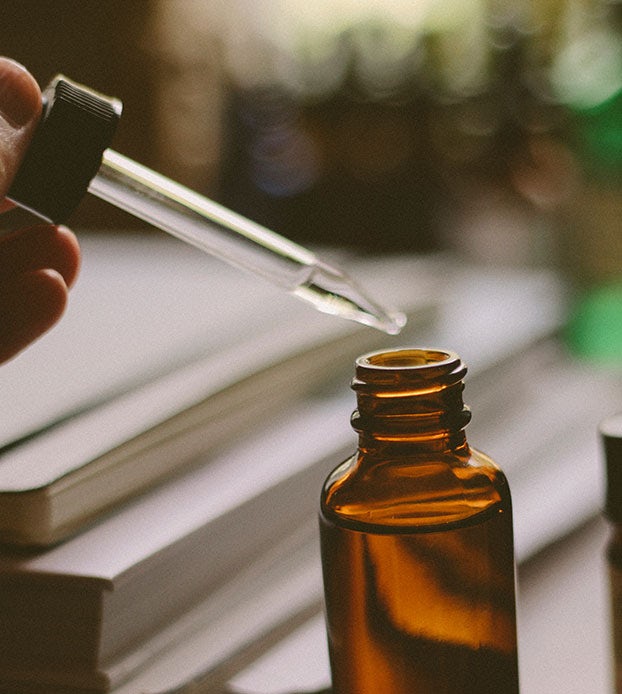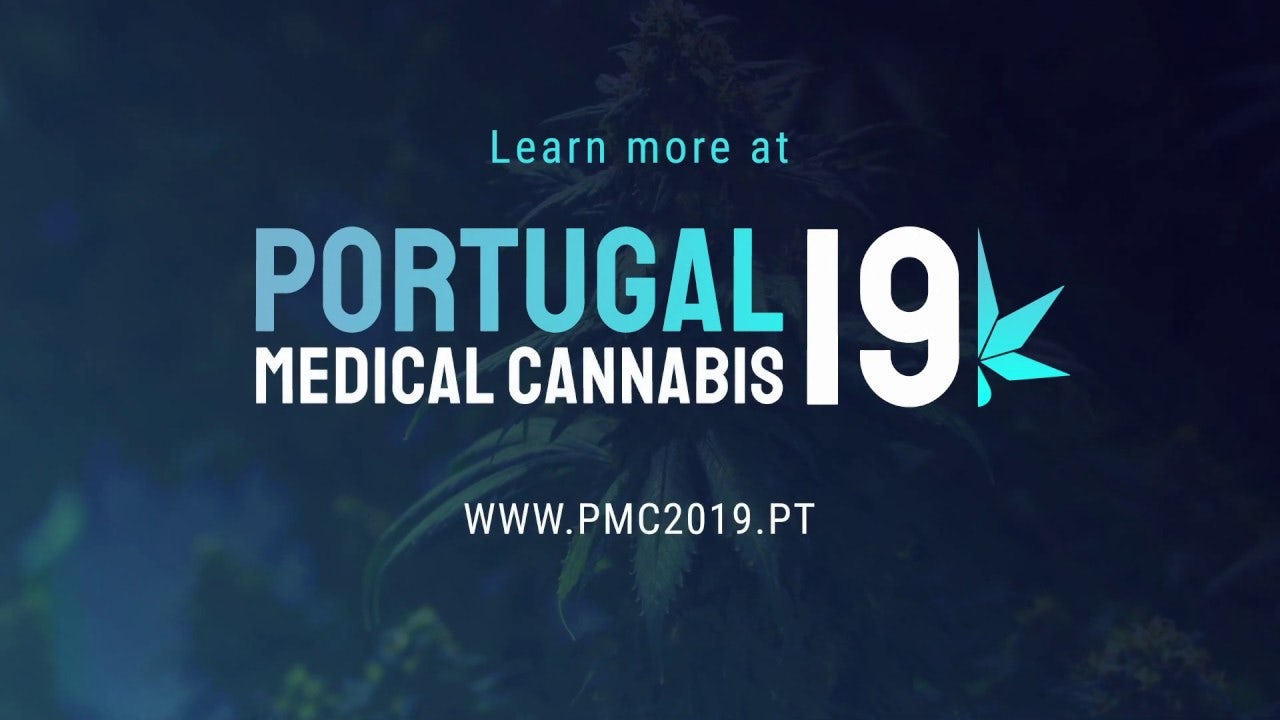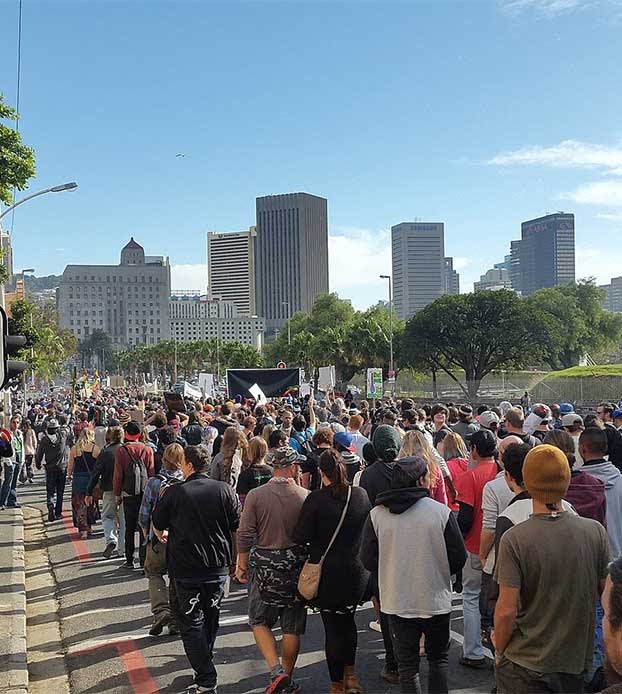Could Jamaica, a global mecca of marijuana, a capital of cannabis culture, be running out of weed? Not really. But things did get bad enough that one analyst made headlines around the world by calling the shortage “a cultural embarrassment” earlier this month.
Others say the whole affair has been blown out of proportion.
M. Omari Jackson, publisher of GanjActivist.com, a Jamaica-based outlet covering all things cannabis on the island, told The Cannigma that reports of a cannabis shortage caused by torrential rains and a drought are “clickbait,” adding that while cannabis growers did take a hit in the rain — so did the entire agricultural sector.
“This is something that happens every year but somehow it made the news this time,” said.
The actual argument made in the widely shared AP article, Jackson explained is that “the inexpensive, seedy, low quality ganja” that used to be sold for $1 (US) per gram is no longer readily available on the streets of Jamaica.”
That’s not necessarily a bad thing, at least according to some.
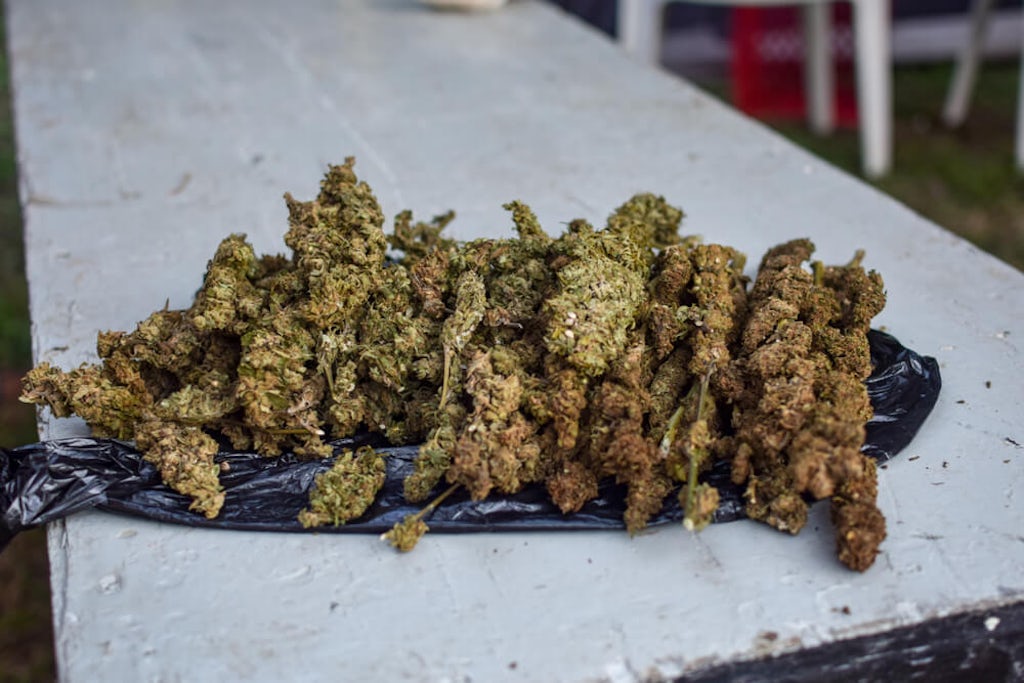
“What’s really happening is that the farmers are growing different strains,” Jackson said. “They are putting more time and money into it so they’re raising the prices. That’s really what’s going on.”
He added that there is still “really cheap stuff you can get in abundance — never great, but it will satisfy.”
Higher-quality chemovars being grown and sold in Jamaica these days can command a higher price ($3-4 per gram).
Those choice strains are destined to take over the local market as the industry matures, Jackson said.
“It’s becoming more sophisticated and if some people are afraid of that so be it.”
A ‘cultural embarrassment’
Earlier this month, the Associated Press report went viral and was quickly picked up by media outlets around the world..
According to that article, heavy rains during the hurricane season followed by a scorching drought left farmers with destroyed crops and reeling with debt. The situation was worsened by curfews put in place to contain the COVID-19 outbreak, which prevented many farmers from tending their crops.
The result, according to the AP, has been a glaring weed shortage.
“It’s a cultural embarrassment,” Triston Thompson, from the Jamaican cannabis consulting and brokerage firm Tacaya said.
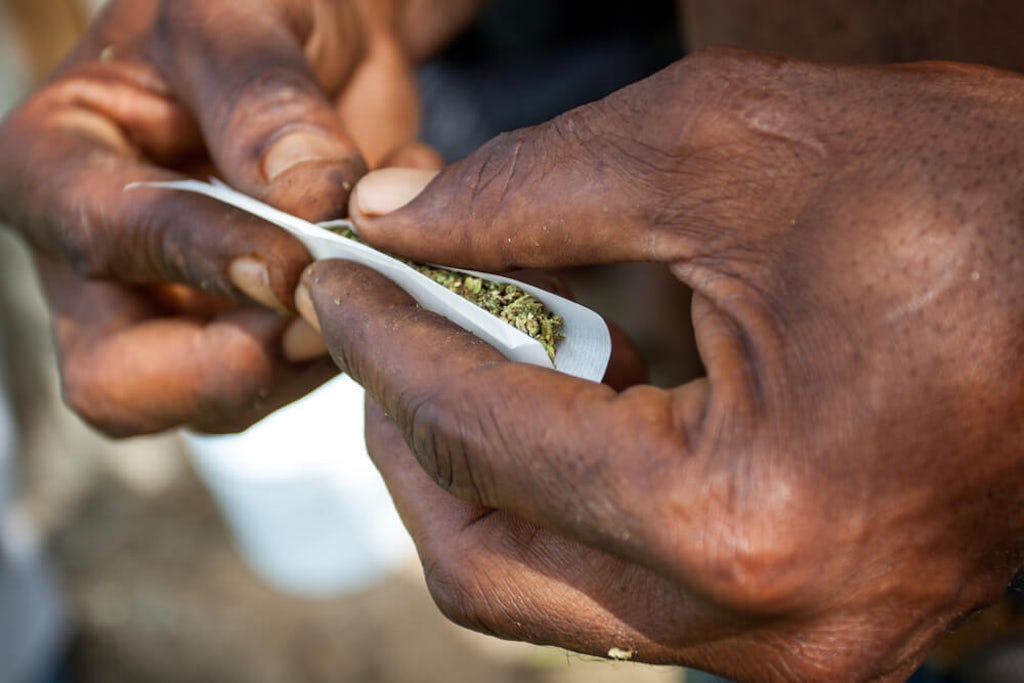
In comments made to The Cannigma this week, Thompson pushed back against the idea that a shortage was only plaguing the legacy cannabis market.
“We do not have an ‘illicit’ cannabis market in Jamaica,” Thompson said in response to emailed questions. “We have a regulated market and an unregulated market. When one says ‘ganja’ they say ‘Jamaica’ and when they say ‘Jamaica’ they say ‘ganja’ — the two are synonymous. Now support this with the fact that we are having a valid conversation about cannabis shortage in Jamaica and there we have a cultural embarrassment.”
Thomson said that cannabis “is a crucial part of Jamaica’s brand identity and rich culture,” and that while the regulated market can meet its own demand, there is a significant shortage when it comes to cannabis for consumption by Jamaicans. Thomson said that this demand “is normally filled by traditional growers who have perfected their craft of producing quality cannabis over a number of generations.”
“Ask any Jamaican consumer and they will tell you cannabis is short,” he said.
‘Boutique gardens with lovingly rooted ganja’
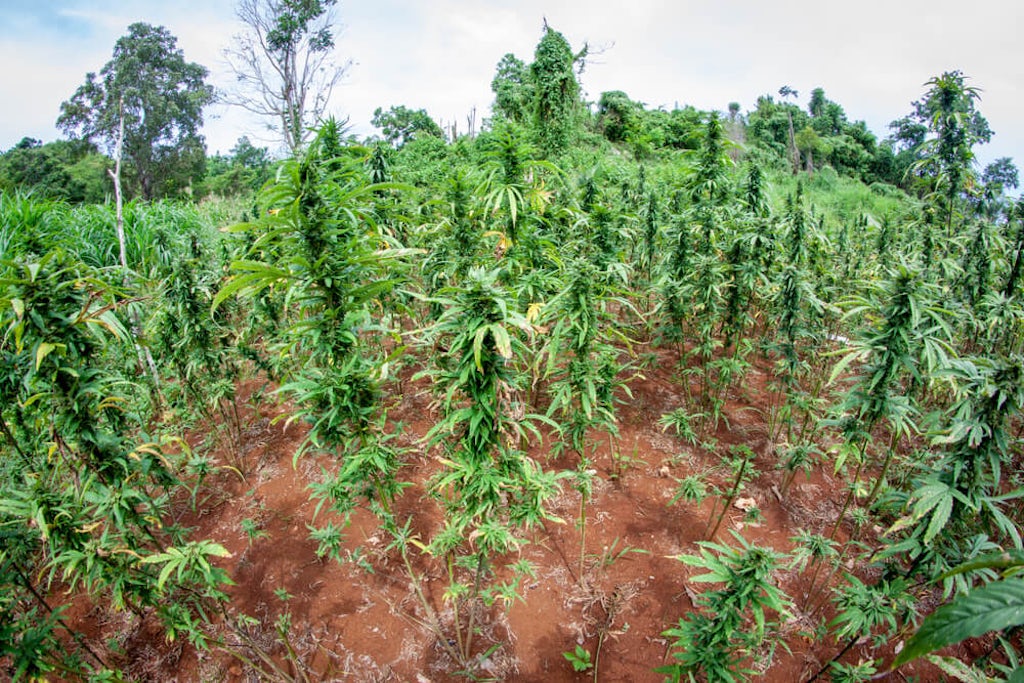
Thomson listed three main reasons: increased local demand due in part to a lessening of the stigma around its use since 2015, non-inclusive government regulations which have caused many traditional farmers to give up on producing cannabis because of the high barriers to entry (“the majority have settled on the idea that they no longer have a place in the industry as it is today”), and climate change, which in 2020 meant “it was either too much rain or too long of a drought, it simply went from one extreme to the next.”
Thomson seemed to agree that people are looking for higher quality cannabis these days, but emphasized that the change is taking place in the legacy market.
“Jamaica has what would be called boutique gardens with lovingly rooted ganja,” he said. “Yes, there is a demand for higher quality ganja, but this demand is driven by the improved quality of traditional farmer-grown cannabis, not the regulated market.”
He added that “it is the ganja that has been grown by these farmers for years — and not corporate ganja — that has captivated the world.”
Could increased consumption be to blame?
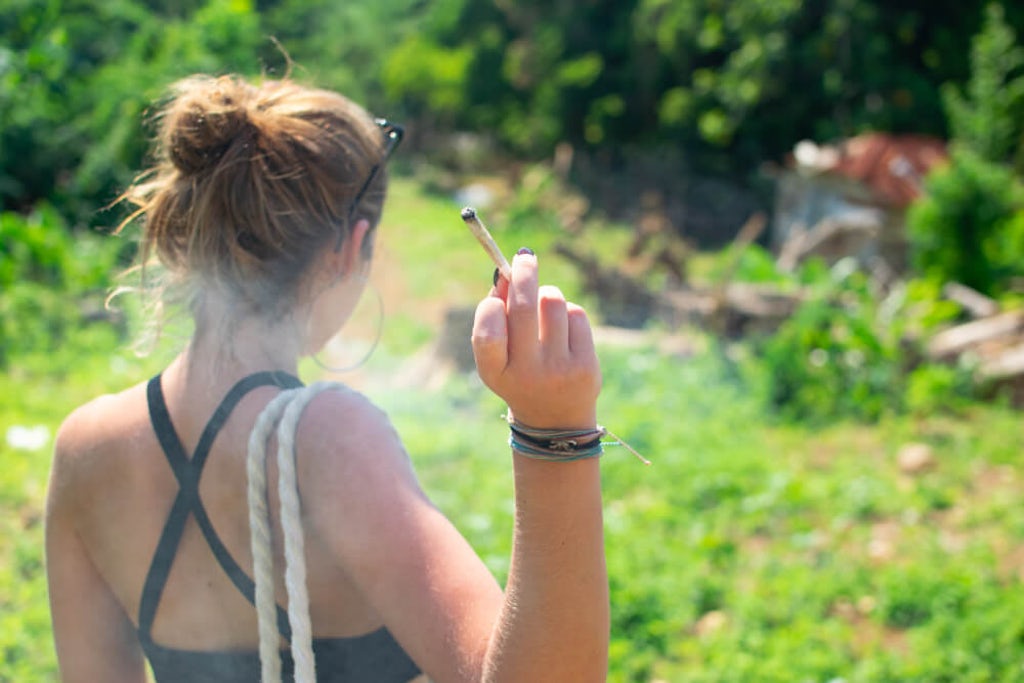
Prem Patel, Group Commercial Manager for the Jamaican cannabis company Jacana, said that the higher than usual rainfall in the last quarter of 2020 has had a detrimental impact mainly on the legacy market, but has also partly affected some legal dispensaries as well.
Shortage or not, “Jamaica is primed to be a major player in the global landscape,” he added, in addition to a flourishing domestic market.
A report in the Gleaner stated that increased local cannabis consumption during the COVID-19 may be partly to blame, and quoted Paul Burke, program director and chief spokesman of the President of the Westmoreland chapter of the Ganja Growers and Producers Association of Jamaica (GGPAJ) as saying that “more people have called me about obtaining ganja since COVID than ever before, so there might be consumption also going up.”
The Gleaner report also quoted Rasta Juta, the president of the Westmoreland chapter of the GGPAJ as saying that there had been a sharp increase in prices due to scarcity and manipulation by speculators, with wholesale ganja that normally costs $5,000 selling for $8,000 on the market.
‘Hybrid ganja can’t take the rain’
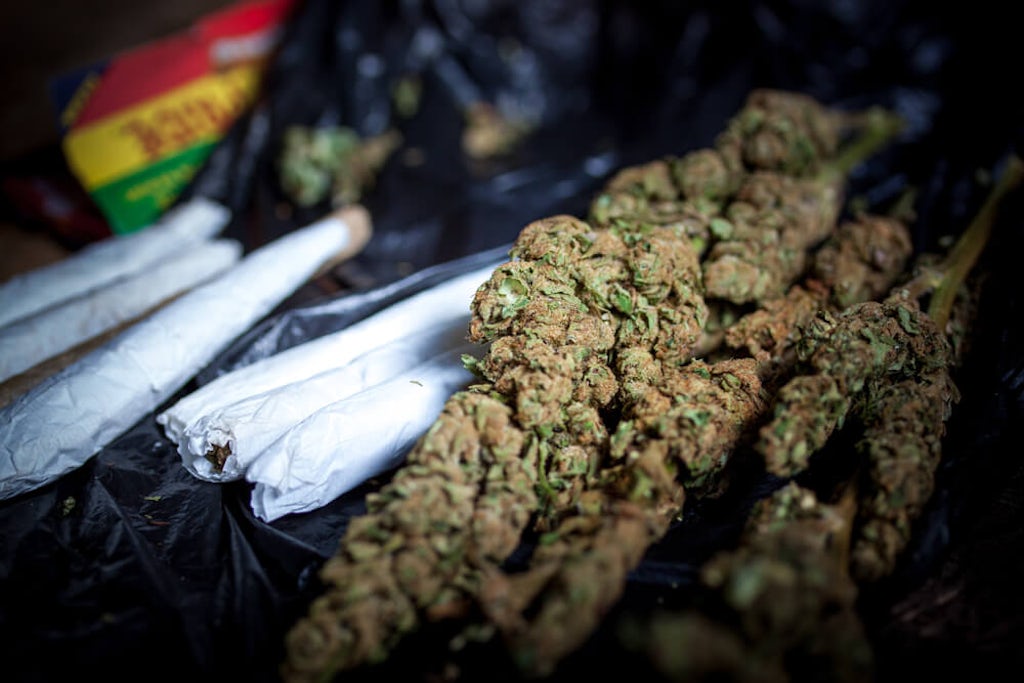
Rasta Juta also blamed what he described as non-native hybrid ganja as being particularly susceptible to the past year’s inclimate weather.
“We no longer have our sativa, it’s all hybrid ganja. The hybrid ganja cannot take the rain because it is not native to Jamaica.”
The reports of shortages run contrary to statements made by the country’s Cannabis Licensing Authority (CLA), whose Senior Director of Operations Faith Graham said earlier in February that “there has been no such report from CLA licensees and checks made with licensees have confirmed that there is no shortage.”
The remark only relates to legal providers however, and does not address whether or not there are shortages in the island’s illicit cannabis market.
In 2015, Jamaica decriminalized the possession of up to 2 ounces of cannabis, which is now subject to a small fine. The drug law amendments also made it legal to grow up to five plants, and rules that rastafarians can legally use cannabis for religious purchases.
The law also allows tourists with medical marijuana prescriptions issued abroad to receive cannabis at dispensaries. Kaya Farms, the country’s first retail cannabis dispensary, opened in 2018 and allows tourists and locals to purchase marijuana flower and concentrates.
Sign up for bi-weekly updates, packed full of cannabis education, recipes, and tips. Your inbox will love it.

 Shop
Shop Support
Support
